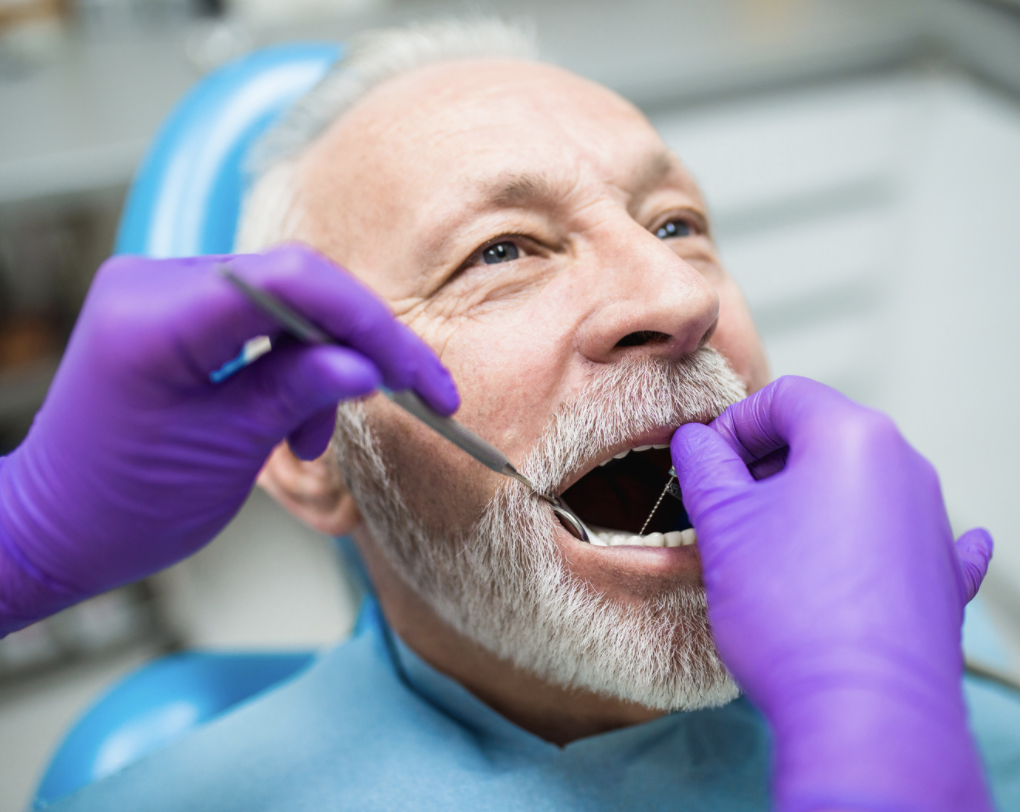Dental Visits To Fight Dementia: A Healthy Mouth Supports A Healthier Brain
July 14, 2021

It may sound like a broken record, but there’s ample evidence to support the conclusion: the healthier your teeth and gums, the better for your body and brain. Which makes a recent survey all the more worrisome: Even before the pandemic, ⅓ of all adults under 65 had not had a dental exam or cleaning in the past 12 months. The problem is even worse in more rural areas of the country, where the costs of care and the lack of dental professionals lead to even more difficult access to dental care. What’s of even greater concern is that tooth loss (estimates are that 1 out of every 10 adults over 50 has lost all of their teeth) is now linked to both loss of daily functional abilities as well as heightened risk for dementia.
First, the connection between dental health and activities of daily living: A recent study published in The Journal of the American Geriatrics Society reports that there is a causal link between tooth loss and functional capacity to perform such tasks as cooking a meal, making a phone call or going out to shop. Tooth loss also leads to less social activity. While more work needs to be done to better understand the connection, one of the lead researchers stated, “The health gain from retaining natural teeth may not be limited to oral health outcomes but have wider relevance for promoting functional capacity and improving overall quality of life.”
Of equal concern is the connection between tooth loss and a heightened risk of dementia. Two newly published studies suggest that the more teeth you lose over your lifetime, the higher your odds of developing dementia. One study, a meta-analysis of other research published in the Journal of Post Acute and Long-Term Care Medicine, finds a link between rising tooth loss and increased risk of cognitive decline, though the use of dentures seems to mitigate this risk. The researchers at NYU who undertook this analysis are unsure of what mechanisms would drive this heightened risk. It is possible that having fewer teeth leads to a less healthy diet (which is linked to great risk of dementia), or that loss of teeth signals a lower socioeconomic lifestyle which may also heighten the risk of cognitive decline. As well, it is possible that gum disease, which can cause tooth loss, may introduce bacteria and inflammatory molecules into the bloodstream which may then travel to the brain and cause damage. In fact, new research from the National Institute of Aging reports that bacteria that cause gum disease are associated with the development of Alzheimer’s as well as vascular dementia. To find out more about the connection between dental health and dementia, grab your toothbrush and click here.
One final concern when it comes to teeth loss: It appears that a calcium deficiency not only affects your bones but may also put you at risk for tooth loss. So just as you may be taking calcium and Vitamin D to support better bone health, downing the greens and fortified dairy may also be strengthening your teeth (which we now know supports better overall health as well). For further insights, read here.







